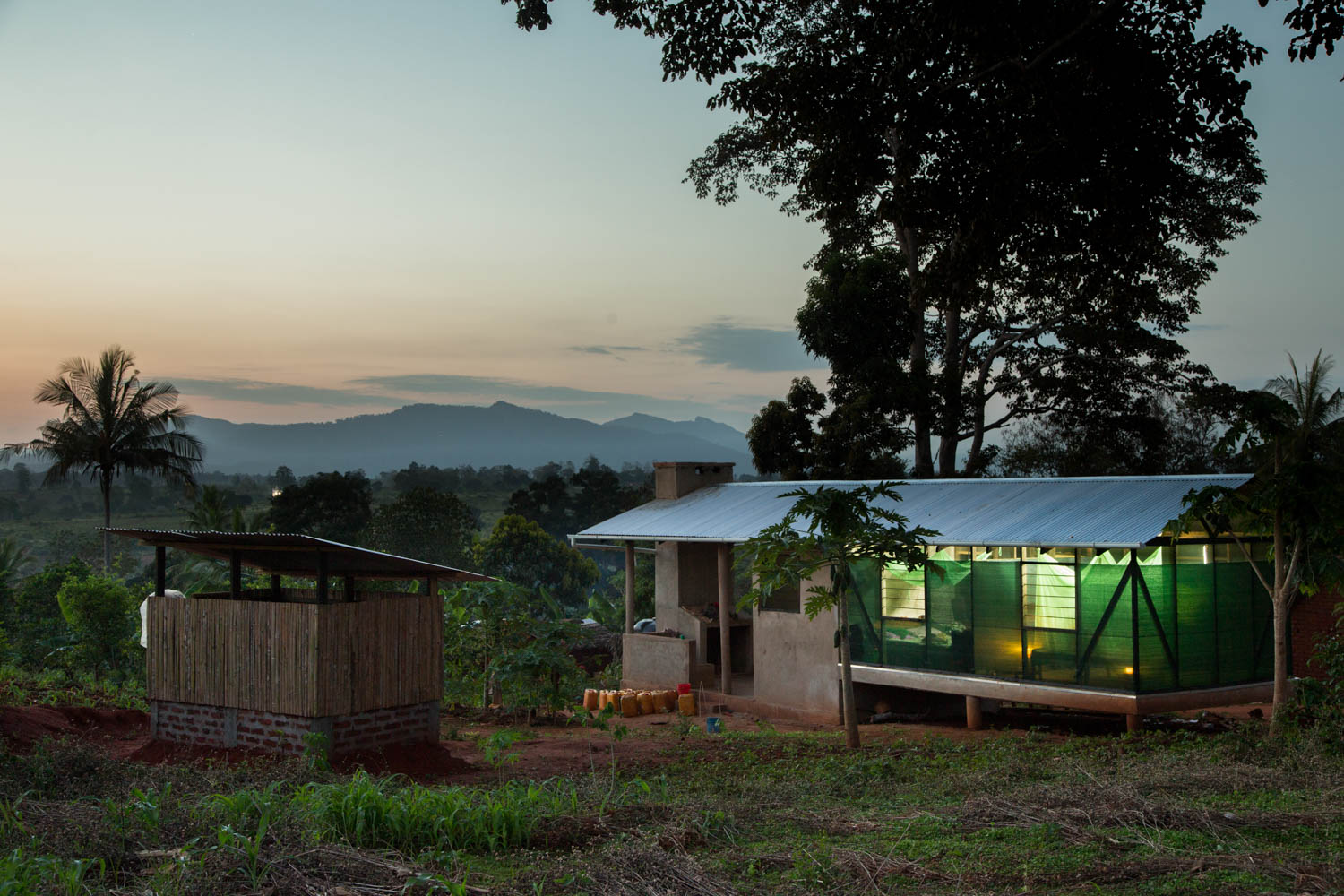"...the homes of some of the world’s rural poor are also in the spotlight, thanks to WAF. In the Tanzanian village of Magoda, eight new houses have been designed by Ingvartsen Architects “to test the relationship between health and architecture”, says Jakob Knudsen, the Danish firm’s founder.
The houses are designed to make sleeping more comfortable in a hot climate where malarial mosquitoes thrive. They were donated to families in a village lottery six months ago. “Typical mud or brick homes have small windows, are very hot, and so it’s uncomfortable to sleep under a mosquito net,” says Knudsen. “The new houses adopt architectural forms and materials from Asian countries. Bedrooms are raised off the ground, and the walls are made of wood, netting or bamboo, so the houses are more airy.”
Craftsmen from Thailand taught the villagers how to use bamboo, which grows locally, as a building material. Not only are the houses relatively cool; thanks to external covered kitchens with chimneys, they are less smoky than typical village homes. “This should result in fewer respiratory and eye problems,” says Knudsen, whose team includes the malaria expert Dr Lorenz von Seidlein, as well as Tanzanian architects, consultants, builders and village chiefs.
The houses harvest and store rainwater from the roof, saving a walk of 5km to collect water from a river. Costing between $5,700 and $7,300 each, depending on design, they are comparable in price to a typical brick and tin roof home, says Knudsen. “The ideal situation now would be that other villagers copy the designs — or elements of them,” he adds. “The young people think they’re cool.” Knudsen hopes that the project might lead to an improvement in residential architecture and public health across Africa. “It has been estimated that over 140m rural houses will be built in Africa by 2050,” he says. “This provides unprecedented opportunities to help guide building design, to modernise and create healthy homes." - Paul Miles, The Financial Times.
Read more here


